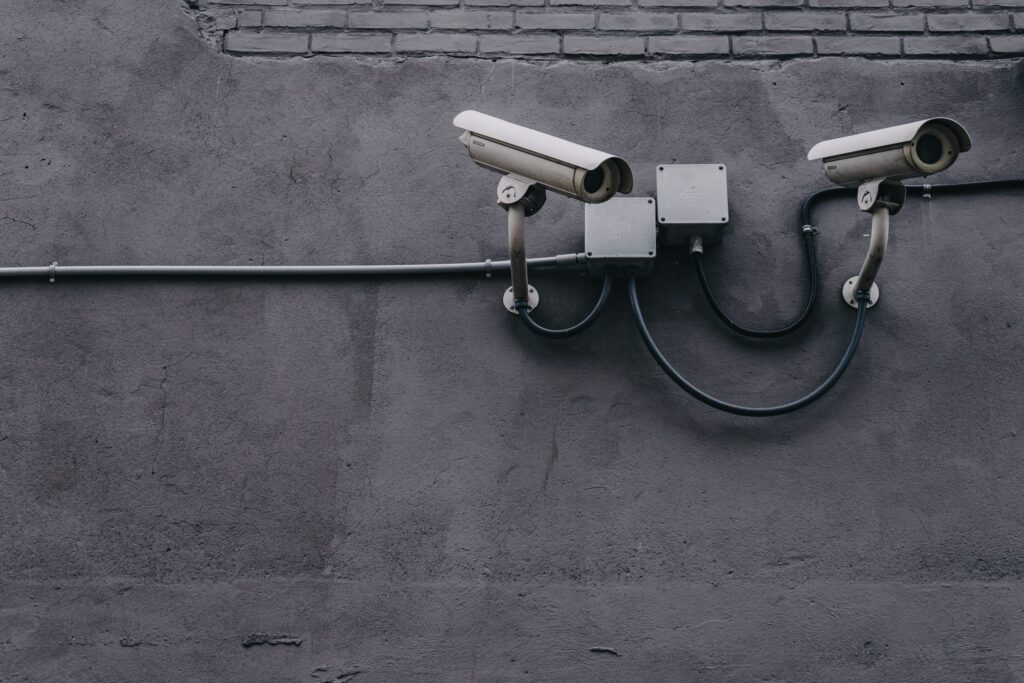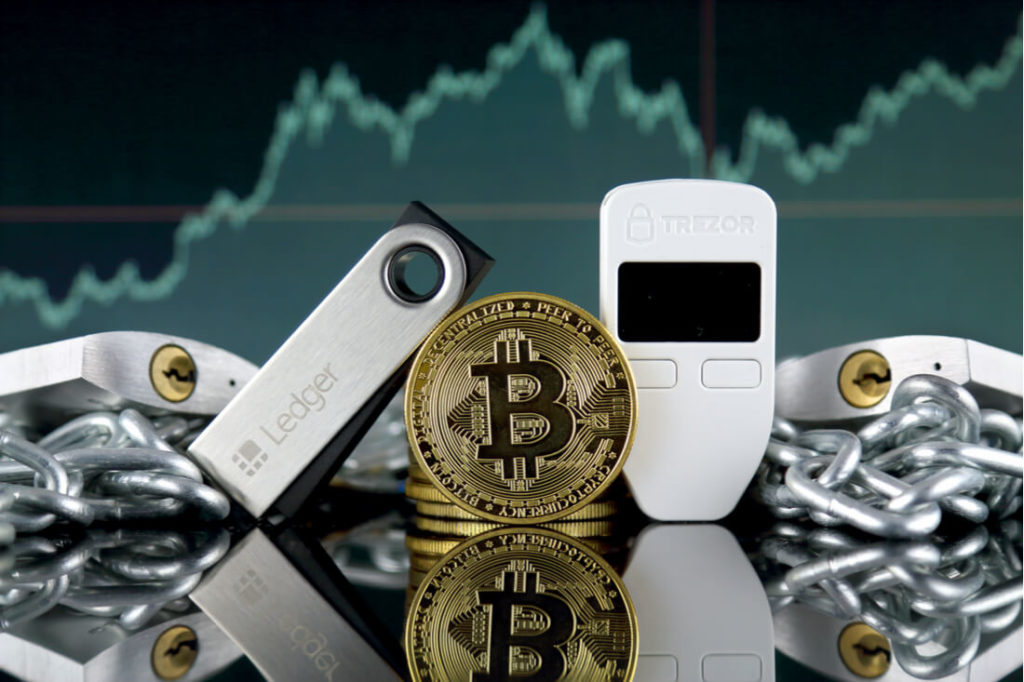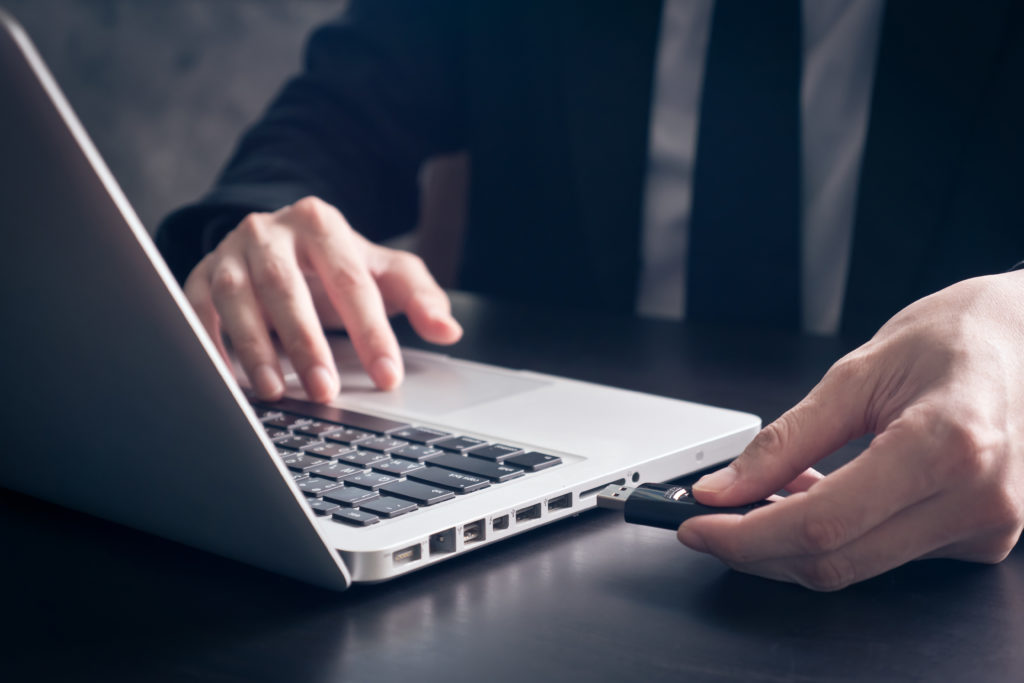
Hack-Proof Ways to Secure Your Crypto Assets
Whether you are new to cryptocurrencies or are an early adopter who is sitting on a mountain of “digital cash”, ensuring that your investments are secured in a hack-proof manner is vital.
This guide reveals how to securely store your crypto assets so that you do not need to worry about losing your funds to hackers.
First and foremost, when you buy bitcoin, you should only use reputable exchanges that provide a secure trading platform where you can safely temporarily store your funds during a transaction. Once you have executed your trades, however, it is best to transfer your funds from exchanges to secure personal cryptocurrency wallets where you hold the private keys.
Put Your Cryptocurrency into “Cold Storage”
Storing your bitcoin in “cold storage” means holding them securely offline where no hacker can access your funds as your wallet is not connected to the Internet. There are two main types of cold storage: hardware wallets and paper wallets.
1. Hardware Wallets
A so-called “hardware wallet” is widely considered the most secure bitcoin wallet. Hardware wallets are USB stick-like devices used to store your private keys, which makes it de facto impossible for hackers to access your cryptocurrency holdings without your knowledge.
You only connect your hardware wallet to your computer when you want to send and receive cryptocurrency. Other than that, you store your hardware wallet in a safe place and keep the backup key for the hardware wallet in a separate place for safekeeping.
Ledger Nano S, Trezor and KeepKey are widely considered as the most popular bitcoin hardware wallets.
Back up Your Wallet
Hardware wallets are considered the go-to option to store large amounts of cryptocurrency, especially for newcomers. However, these devices can be lost or damaged or could malfunction. Hence, it is extremely important to note down and securely store your hardware wallet recovery phrase.
The recovery phase enables hardware wallet owners to retrieve their funds on a new device should theirs be lost or damaged. Having said that, anyone who comes in possession of the recovery phrase can access your funds, so remember to keep your recovery phrase in a safe place that only you can access.
Be Careful When Purchasing Hardware Wallets
Before you buy your first hardware wallet, it is important to highlight that you should only purchase hardware wallets from their producers directly. The reason for that is that there have been instances of individuals who purchased a Ledger Nano S hardware wallet on eBay only to realize later on that the original owner of the wallets had opened them and stored the recovery phrase in order to steal all the funds from the persons to whom the devices were sold. Hence, you should never buy hardware wallets secondhand or from unofficial vendors.

2. Paper Wallets
Alternatively, you can also securely store your digital assets in so-called “paper wallets.” A paper wallet is a paper document that contains both your private and your public keys and allows you to store your coin offline.
A bitcoin paper wallet is considered the most secure bitcoin wallet next to hardware wallets since it is not connected to the Internet and can thus not be accessed by hackers. However, paper wallets are slightly more difficult to set up and use than hardware wallets and are, therefore, less popular among new cryptocurrency investors.
To set up a paper wallet, first, you need to generate and print one from sites such as BitcoinPaperWallet.com or WalletGenerator.net. Then, you send your coins to the public address on the document. Once that is done, you securely stow the paper wallet in a location where it cannot be damaged or lost. Ideally, you want to laminate your paper wallets and store them in a safe deposit box or a safe.
If you want to retrieve funds from the wallet, you will need to import your private keys into a mobile or desktop wallet to spend the coins. Printable paper wallets exist for all major cryptocurrencies.
Be Safe When Generating Paper Wallets
There are a few steps you should take to ensure you are generating your paper wallet securely. In a perfect world, you would use a brand-new computer to ensure that malware is not present. However, since most people who need a paper wallet probably do not want to purchase a new computer just to generate a paper wallet, here are some steps you can take to make the process more secure:
- Run a malware check on your device before you begin the generation process.
- Unplug your internet access before actually generating the keys.
- When printing your keys, ensure that you are not using a Wi-Fi connected printer.
- Clear your internet history after the keys have been generated.
- Delete the program that generated the keys before re-connecting to the internet.
Storing Your Crypto Assets on Your Desktop
Alternatively, you can also store your digital assets on your computer. Securing your crypto assets on your desktop is not as secure as using a hardware wallet or a paper wallet, but it does come with the added convenience of being able to easily send and receive coins.
A desktop wallet is a downloadable software that allows users to store, send, and receive cryptocurrency on their computers. The first-ever cryptocurrency desktop wallet was the Bitcoin Core wallet, which is still a popular bitcoin wallet today.
Even though this is inherently a less secure way to store your crypto assets, there are some things you can do to increase the level of security a bit.
Back up Your Wallet
When using a desktop wallet, it is extremely important to back up your wallet. That means saving the wallet.dat file, which contains your private keys, on a USB stick that you keep securely locked away. In case your computer crashes and no longer starts up or your hard disk is damaged for some reason, you are still able to retrieve your wallet simply by recovering it using your wallet.dat file on another device.

Encrypt Your Wallet
Once you have backed up your wallet, it is also important to encrypt your wallet using a password that you will remember. Once your wallet is encrypted, it becomes more difficult for hackers to access your funds even if they have somehow managed to gain access to your computer. If you are worried that you might forget your encryption password, write it down on a piece of paper and store it away somewhere safe.
Multi-Signature
Some wallets also have a multi-signature feature, which ensures that the coins contained in the wallet can only be spent when two or more users sign the transaction. This creates an added layer of security as a hacker who gains access to one user’s private key is unable to steal any funds as more private keys are needed to process a transaction.
Perhaps the most familiar kind of multisig application is 2-factor authentication. By enabling 2-factor authentication with your crypto wallet, one private key may be on your primary computer and the other on your smartphone. Since the funds cannot be spent without a signature from both devices, a potential hacker would have to gain access to both devices to steal your funds. In this way, 2-factor authentication adds an additional layer of security to a desktop wallet.
Install Antivirus and Malware Detection Software
Finally, when using desktop wallets, it is also highly advisable to run up-to-date antivirus and malware detection programs on your computer to protect yourself from malware that is targeting your bitcoin wallet. A combination of the Avast Antivirus and Malwarebytes should do the trick.
Provided you back up and encrypt your wallet, install strong antivirus and malware-catching software, and take basic cybersecurity precautions when surfing the Internet, you reduce the chances that hackers will be able to access your crypto assets.
Safe Storage
Finally, you should store your paper wallets and wallet backups in a location where your heirs can access them in Your crypto assets may be worth much more in the future than they are today, so be sure to leave information about how to access your crypto assets with those whom you wish to have them with a lawyer or an estate planning professional in the event of your demise.
Now that you know how to secure your crypto assets, it is time to procure them! Sign up for free with Xcoins today and buy digital coins with our easy-to-use, secure platform!

